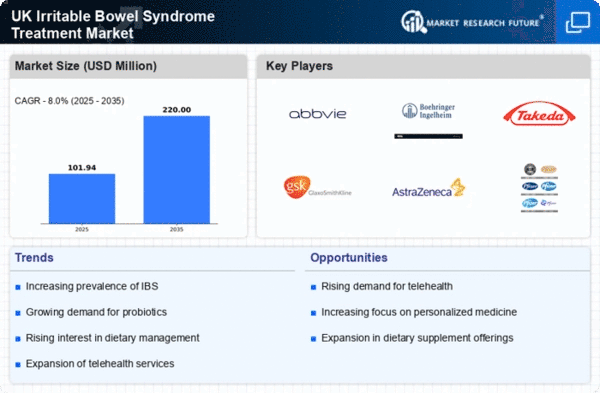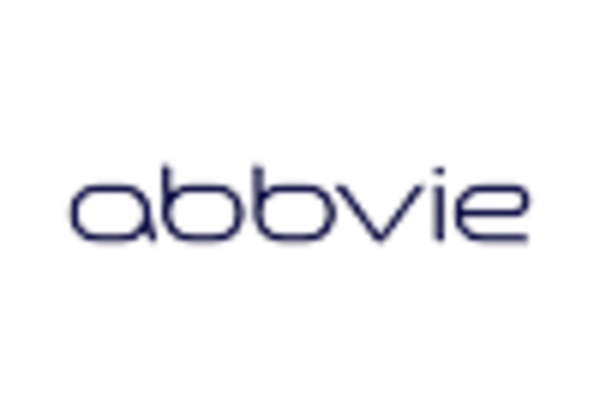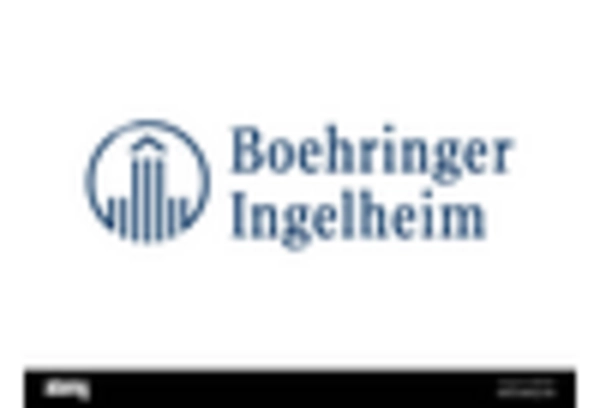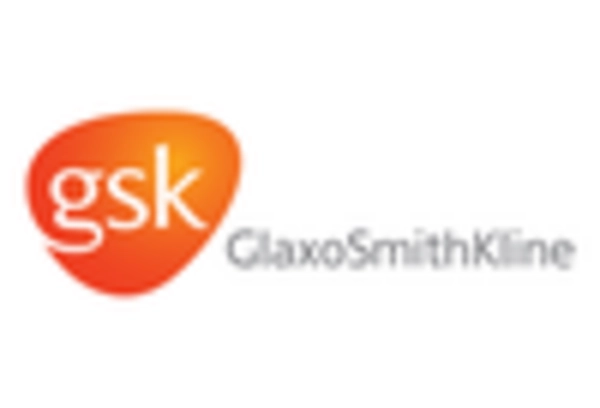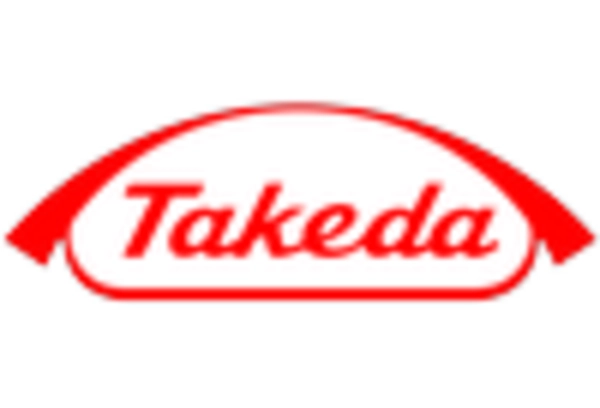Rising Prevalence of IBS
The increasing prevalence of irritable bowel syndrome (IBS) in the UK is a significant driver for the irritable bowel-syndrome-treatment market. Recent estimates suggest that approximately 10-15% of the UK population experiences IBS symptoms, leading to a growing demand for effective treatment options. This rising incidence is attributed to various factors, including dietary habits, stress levels, and lifestyle changes. As awareness of IBS expands, more individuals seek medical advice, thereby propelling the market forward. The healthcare system's focus on managing chronic conditions further emphasizes the need for innovative treatments. Consequently, pharmaceutical companies are investing in research and development to create new therapies, which could potentially enhance patient outcomes and satisfaction in the irritable bowel-syndrome-treatment market.
Increased Awareness and Education
There is a notable increase in awareness and education surrounding irritable bowel syndrome (IBS) in the UK, which serves as a crucial driver for the irritable bowel-syndrome-treatment market. Campaigns aimed at educating the public about IBS symptoms and management options have gained traction, leading to more individuals recognizing their condition and seeking treatment. This heightened awareness is reflected in the growing number of consultations with healthcare professionals, as patients become more informed about their health. Furthermore, educational initiatives by healthcare providers and non-profit organizations contribute to destigmatizing IBS, encouraging patients to discuss their symptoms openly. As a result, the demand for effective treatment solutions is likely to rise, positively impacting the irritable bowel-syndrome-treatment market.
Regulatory Support for New Treatments
Regulatory support for the development of new treatments is a crucial driver for the irritable bowel-syndrome-treatment market. In the UK, regulatory bodies are increasingly facilitating the approval process for innovative therapies aimed at managing IBS. This support is evident in the streamlined pathways for clinical trials and the emphasis on patient-centric approaches in drug development. As a result, pharmaceutical companies are more inclined to invest in research and development, knowing that there is a supportive regulatory environment. This trend not only accelerates the introduction of new treatment options but also enhances competition within the market. Consequently, patients may benefit from a wider array of effective therapies, further stimulating growth in the irritable bowel-syndrome-treatment market.
Technological Innovations in Treatment
Technological innovations are playing a pivotal role in shaping the irritable bowel-syndrome-treatment market. The advent of new treatment modalities, including digital health applications and telemedicine, has transformed how patients manage their IBS symptoms. These technologies facilitate remote consultations, enabling patients to access healthcare professionals without geographical constraints. Moreover, advancements in diagnostic tools, such as breath tests and gut microbiome analysis, allow for more accurate identification of IBS subtypes, leading to tailored treatment approaches. The integration of technology into treatment regimens not only enhances patient engagement but also improves adherence to prescribed therapies. As these innovations continue to evolve, they are expected to drive growth in the irritable bowel-syndrome-treatment market.
Growing Demand for Alternative Therapies
The growing demand for alternative therapies is emerging as a significant driver in the irritable bowel-syndrome-treatment market. Many patients are increasingly seeking non-pharmacological options to manage their IBS symptoms, including dietary supplements, probiotics, and herbal remedies. This trend reflects a broader shift towards holistic health approaches, where individuals prioritize natural and complementary treatments. Research indicates that certain probiotics may alleviate IBS symptoms in some patients, leading to a surge in their popularity. As healthcare providers recognize the importance of addressing patient preferences, they are more likely to incorporate alternative therapies into treatment plans. This shift could potentially reshape the landscape of the irritable bowel-syndrome-treatment market.


